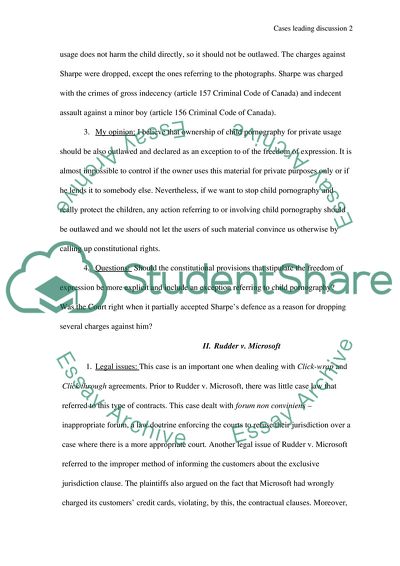Cite this document
(Case Analysis: Her Majesty The Queen v. John Robin Sharpe Assignment, n.d.)
Case Analysis: Her Majesty The Queen v. John Robin Sharpe Assignment. Retrieved from https://studentshare.org/law/1564043-leading-discussion
Case Analysis: Her Majesty The Queen v. John Robin Sharpe Assignment. Retrieved from https://studentshare.org/law/1564043-leading-discussion
(Case Analysis: Her Majesty The Queen V. John Robin Sharpe Assignment)
Case Analysis: Her Majesty The Queen V. John Robin Sharpe Assignment. https://studentshare.org/law/1564043-leading-discussion.
Case Analysis: Her Majesty The Queen V. John Robin Sharpe Assignment. https://studentshare.org/law/1564043-leading-discussion.
“Case Analysis: Her Majesty The Queen V. John Robin Sharpe Assignment”, n.d. https://studentshare.org/law/1564043-leading-discussion.


